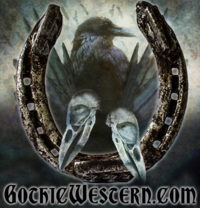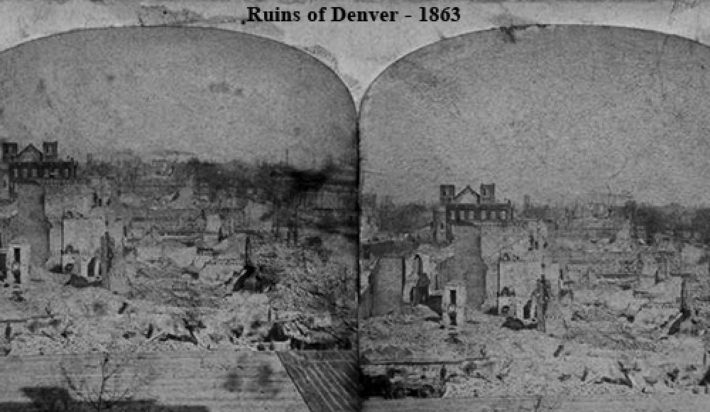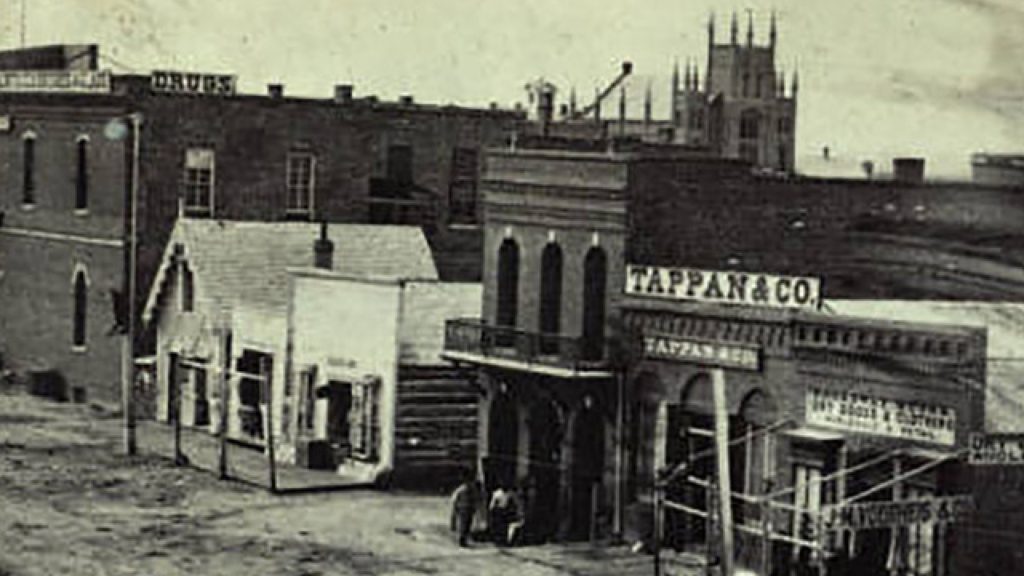A constant fear for western towns was fire. The buildings were wood, and with the dry weather, they soon became kindling. During the Denver 1863 fire that fear became a reality. A pile of garbage behind the Cherokee House Hotel ignited. A wind whipped up the flames into a citywide inferno. The resulting damage was estimated to be in the range of $350,000, which doesn’t sound like much, but in the 1860’s that was most of Denver.
As with most tragedies, it brought out the worst and the best in men. When it came time to rebuild the area the local Kountze Brothers Bank announced that they were willing to give loans to merchants… The best in men? Not really. The interest was a whopping 25% per year… And we think interest rates are high today.
Prior to the fire there was quite a bit of animosity between Denver City and neighboring Cherry Creek. With both cities adversely affected, they put aside their animosity and worked together… Truly the best in men.
One of the individuals who borrowed money from the Kountze Brothers Bank was a Black entrepreneur by the name of Barney Ford. He operated a barbershop that was destroyed in the fire. Barney borrowed $9,000 at the going rate of 25% interest.
But, Barney Ford didn’t use it to reopen his barbershop. He used it to open the People’s Restaurant. Along with great food, the restaurant advertised fresh oysters and Havana cigars. How did Barney Ford do? Well, even at the high interest rate, he paid off the loan in just 90 days.
At the time of the fire, most of the buildings in Denver were built out of resin-rich pine, according to the Denver Firefighters Museum, making them especially susceptible to fire.
In response to the disaster, Denver enacted a new ordinance, referred to as the “brick ordinance,” that required buildings to be constructed out of fire resistant materials like brick or stone.



